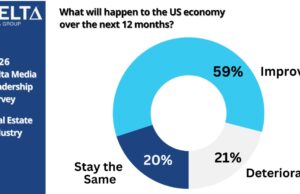Norton Introduces Bill to Make D.C. Eligible for Federal Flood Mitigation and Prevention Funds
WASHINGTON, D.C. – (RealEstateRama) — Congresswoman Eleanor Holmes Norton (D-DC), a senior member of the House Transportation and Infrastructure Committee, has introduced a bill to amend the Coastal Zone Management Act of 1972 (CMZA) in order to include the District of Columbia in the definition of a coastal state, which would make D.C. eligible for federal coastal zone management funding. Norton’s bill would also give the District oversight for federally issued permits/facilities/actions that affect the coastal waters of the District. Norton said she believes the District’s omission from the CMZA was an unintentional oversight, as the CMZA was passed in 1972—before the District achieved home rule—and the territories were included.

In her introductory statement, Norton said, “Even though the District of Columbia has substantial coastal flood risks, D.C. is omitted from the list of eligible states and territories in the CZMA…Because the territories are included in the definition of ‘coastal states,’ it appears that D.C.’s omission is a mistake that only Congress can correct. Scientists have predicted that the tides on the Atlantic Coast could rise two to four feet by the year 2100, causing as much as $7 billion worth of property in the District to be routinely under threat by floodwaters. This damage not only includes private homes and businesses, but the National Mall, federal buildings, and three military bases located in the District…Because of these factors, the District of Columbia should be eligible for CZMA grants just like the states and territories.”
Norton’s full introductory statement is below.
Statement of the Honorable Eleanor Holmes Norton on Introduction of the Flood Prevention Act of 2016
Ms. Norton. Mr. Speaker,
I rise to introduce the Flood Prevention Act of 2016. The bill would amend the Coastal Zone Management Act of 1972 (CZMA) to include the District of Columbia in the definition of “coastal state.” Our bill would correct what appears to be an oversight in the omission of the District of Columbia, making the District eligible to receive federal funding and giving the District oversight for federally issued permits/facilities/and actions that affect the coastal waters of the District.
In an effort to reduce coastal flood risk, Congress has authorized a number of programs to help states and territories respond to floods and mitigate risk through resiliency projects. Among these programs, the CZMA provides planning and technical services to assist states in protecting, restoring, and developing coastal communities and resources. Once the federal government approves a state’s coastal management plan, the state becomes eligible for grants. Federal actions must be consistent with the state plans.
Even though the District of Columbia has substantial coastal flood risks, D.C. is omitted from the list of eligible states and territories in the CZMA. The CZMA was passed in 1972 – before the District achieved home rule. Under Section 304 of the CZMA, “coastal state[s]” include the states and the U.S. territories (Puerto Rico, the Virgin Islands, Guam, the Commonwealth of the Northern Mariana Islands, the Trust Territories of the Pacific Islands, and American Samoa). Absent from this definition is the District of Columbia, even though the District of Columbia is under threat from rising sea levels. Because the territories are included in the definition of “coastal states,” it appears that D.C.’s omission is a mistake that only Congress can correct.
Scientists have predicted that the tides on the Atlantic Coast could rise two to four feet by the year 2100, causing as much as $7 billion worth of property in the District to be routinely under threat by floodwaters. This damage not only includes private homes and businesses, but the National Mall, federal buildings, and three military bases located in the District. The Anacostia and Potomac rivers are both tidally influenced, showing tangible salt water effects (and fish) and are part of an “intertidal-zone” existing between high and low maritime tides. In addition, the Maryland and Virginia coastal zones each include the tidal Potomac River, with Maryland’s zone ending at the District line. Because of these factors, the District of Columbia should be eligible for CZMA grants just like the states and territories.
I urge support for this bill










